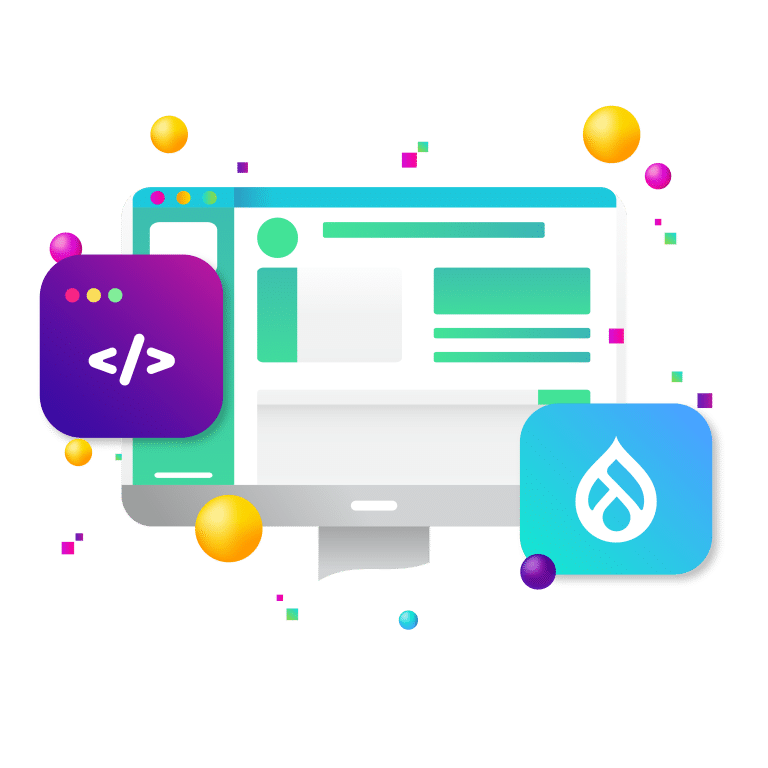Did you know Salesforce has 15 different types of clouds? Salesforce is a group of tools and services intended to fulfill various purposes rather than just a single CRM platform.
What then are all these Salesforce clouds used for? Discover Salesforce’s six main clouds, as well as nine more focused clouds, and learn about their key attributes in this article. Each cloud has its own unique features and benefits that can help you better manage your sales, service, and marketing operations.

Salesforce Clouds Explained
Salesforce Sales Cloud
Salesforce Sales Cloud is among the most popular clouds Salesforce offers. It promotes communication across several platforms, streamlines the sales process, and increases lead creation. Sales representatives and sales managers in the B2B and B2C markets use the Sales Cloud.
Increasing sales is one of the main reasons companies use Sales Cloud, and it is effective. Salesforce claims that businesses that use Sales Cloud experience a 44% improvement in productivity and a 37% increase in win rate. According to an additional study, adopting Sales Cloud can boost conversion rates between 40% and 300%.
For companies of all sizes, Sales Cloud provides a number of crucial services, including:
- Managing contacts and account data
- Lead tracking and management
- Management of opportunities and products
- Campaigns
To improve the functionality of Sales Cloud, you can also add modules. Some of the most popular modules are:
- Customer 360 Data Manager: Connects customer experiences across departments and channels
- Einstein AI: lead scoring and predictive analysis for better decision making
- Sales Path: accelerates lead qualification
Salesforce Marketing Cloud
Digital Marketers can deliver the right message to the right audience at the right time with the aid of Salesforce Marketing Cloud (formerly Exact Target). It contains integrated tools for content creation and management, data analysis, advertising, web personalization, email, and customer journey management.
Six tools make up the Marketing Cloud, which digital marketers can use to build effective marketing campaigns for a variety of media.
- Journey Builder: It allows you to revamp your campaign and gives digital marketers the ability to provide a personalized experience to customers at every stage of their journey across various marketing channels. Regardless of the size of your audience, it enables your staff to provide straightforward to complex experiences for every customer.
- Personalization Builder: Marketing professionals can customize and comprehend a wide range of client preferences with the use of technologies like predictive analytics and predictive modeling.
- Analytics Builder: Fusing cutting-edge AI technology with various visual tools helps marketers discover fresh and improved insights about their current and potential customers.
- Content Builder: Grants you complete access to an intuitive dashboard that enables your marketing team to create, distribute, manage, and track content across all of your marketing channels from one location.
Salesforce Commerce Cloud
Salesforce Commerce Cloud is a multi-tenant, cloud-based commerce platform that allows businesses to create cohesive, intelligent purchasing experiences for their customers across all channels, including mobile, social, online, and retail. While cooperating on cloud-based IT solutions, it offers a highly tailored and strategic approach to online purchasing experiences. Additionally, it enables the incorporation of stores with improved order administration and retail operations for maximum efficiency.
The following are some of the features of Salesforce Commerce Cloud:
- Modern Storefront App: By offering tools for the responsive front-end design and enhancing the functionality of existing apps, it will speed up the creation and implementation of E-commerce applications.
- Service to customers and checkout: Help agents increase conversions and equip them with the tools they need to communicate with customers more successfully. Agents can also gain from it by keeping track of customers’ order histories and improving customer service.
- Extensions for commerce: To improve the operation of websites, a variety of different extensions, custom mobile applications, in-store integration, and other extensions are available.
- The roadmap for Salesforce’s Commerce Cloud: It’s a fantastic solution that gives you the direction you need to design client journeys while also letting you concentrate on sales.
Service Cloud
One of the main Salesforce Clouds, Salesforce Service Cloud, offers all the tools necessary to enhance customer engagement. You can use it to automate business processes, facilitate customer interactions across all channels, gather useful information from each customer encounter, and employ artificial intelligence to increase sales by using an intelligent workflow.
The following are some of the main characteristics of this Salesforce Service Cloud:
- Omni Routing: This tool can help direct the right cases to the right agents. Additionally, it can measure the typical handling time and help with problem detection so that quick fixes can be given. It also offers an Email-to-Case capability that allows you to send emails that arrive in a certain inbox directly to Salesforce.
- Tracking Support Needs: It assists companies in keeping track of the many services to which their clients are entitled and in setting important checkpoints along the way. Business teams can keep track of situations that need an immediate response by establishing appropriate service levels and outlining service processes’ phases using Entitlements and Milestones.
- Live Chat: Since live messaging and chat have become common forms of communication in recent years, text messages can be sent to mobile devices using Salesforce LiveMessage. Even the LiveChat feature enables real-time communication with customers.
- Lightning Console: The agent is provided with all the data, including Subjects, Client Profiles, and Knowledge Bases, to enable rapid client interactions and the provision of first-rate service.
- Field Service Lightning: Using a single platform, Field Service Lightning offers faster service from the phone to the field. This facilitates the management of technical staff, the management of complex assets, and information access from any mobile device.
- Screen Popping (display of incoming caller information), Automated Dialing, and Phone Control: These are all made possible by CTI Integration, which enables the integration of telephone systems with Salesforce.
- Custom reports and dashboards: Offer a 360-degree view of customers, orders, customer service support history, and all of their actions.
Call scripting, Einstein Reply Recommendations, Salesforce1 Platform, Asset Management, Service Wave Analytics, Social Customer Service, etc., are some of the other important elements of Service Cloud.
Salesforce Experience Cloud
Salesforce Experience Cloud, formerly known as Community Cloud, creates online communities by bringing together clients, employers, partners, and agents. It enables you to develop web-based portals for customer support, sales, and other crucial operations.
For the benefit of all Salesforce users in your company, Experience Cloud builds an internal social network using the CRM data you already have. For your IT support desk, HR department, and other internal services, you can design specialized portals. In addition, Experience Cloud serves as a forum and website for connecting users with the teams they require.
Salesforce Analytics Cloud
The Salesforce Analytics Cloud is made to assist your company in getting the most benefit possible from the data you gather. Your data will be thoroughly analyzed by Analytics Cloud’s AI technology to produce insights that can be put to use. It enables you to easily display your data in practical graphs and charts that you can provide to important stakeholders. The objective is to give your staff more pertinent information so they can make better, more knowledgeable judgments.
Salesforce provides nine more clouds for specific applications and sectors. These clouds are made to support various business and organization models.
Among these extra clouds are:
Salesforce Integration Cloud offers large businesses a unified view of customer data
Salesforce App Cloud provides management for users, apps, and events
Salesforce IoT Cloud for converting unusable customer data from linked smart devices’ raw data.
Salesforce Manufacturing Cloud offers a CRM solution for manufacturing organizations.
Salesforce Financial Services Cloud gives financial advisors access to asset management and wealth management features.
Salesforce Education Cloud manages hiring, admissions, institutional operations, and the student experience for educational institutions.
Salesforce Nonprofit Cloud is a tool for nonprofit organizations to manage donations, fundraising, and other tasks.
Salesforce Health Cloud combines patient, medical, and benefits data for healthcare firms.
Salesforce Vaccine Cloud monitors COVID vaccine administration, vaccine status, and test results.
Conclusion
Successful businesses must provide members and customers with an integrated experience that supports personalization, encourages community interaction, and offers easy access to administrative tasks like event registration or contact information updates.
With all of Salesforce Clouds and New Target’s significant experience with Salesforce CRM, we can work together to achieve the integrated experience your customers crave. Contact us today!



